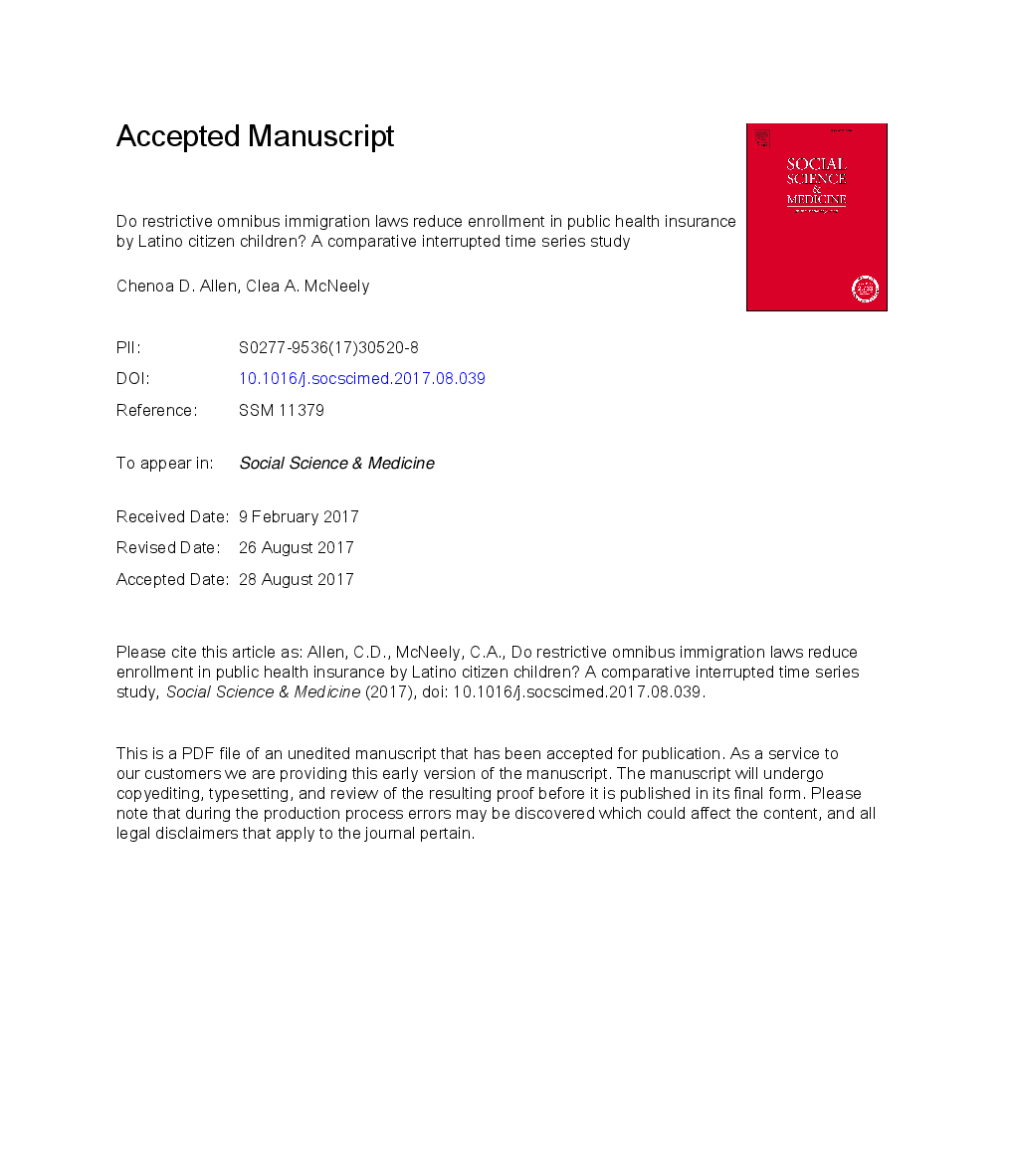ترجمه فارسی عنوان مقاله
آیا قوانین مهاجرت محدودیت پذیری توسط فرزندان شهروند لاتین ثبت نام می کنند؟ یک مطالعه سریال وقفه ای مقایسه ای
عنوان انگلیسی
Do restrictive omnibus immigration laws reduce enrollment in public health insurance by Latino citizen children? A comparative interrupted time series study
| کد مقاله | سال انتشار | تعداد صفحات مقاله انگلیسی |
|---|---|---|
| 112318 | 2017 | 43 صفحه PDF |
منبع

Publisher : Elsevier - Science Direct (الزویر - ساینس دایرکت)
Journal : Social Science & Medicine, Volume 191, October 2017, Pages 19-29

